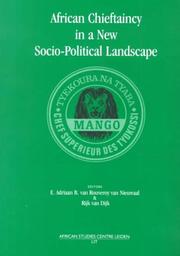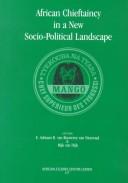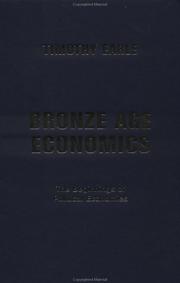| Listing 1 - 10 of 117 | << page >> |
Sort by
|
Book
Year: 2013 Publisher: Cambridge, Mass. : National Bureau of Economic Research,
Abstract | Keywords | Export | Availability | Bookmark
 Loading...
Loading...Choose an application
- Reference Manager
- EndNote
- RefWorks (Direct export to RefWorks)
Book
ISBN: 1869960017 9781869960018 Year: 1988 Publisher: Edinburgh : Traditional Cosmology Society,
Abstract | Keywords | Export | Availability | Bookmark
 Loading...
Loading...Choose an application
- Reference Manager
- EndNote
- RefWorks (Direct export to RefWorks)
Book
ISBN: 1776145437 1776141113 Year: 2022 Publisher: Johannesburg : Wits University Press,
Abstract | Keywords | Export | Availability | Bookmark
 Loading...
Loading...Choose an application
- Reference Manager
- EndNote
- RefWorks (Direct export to RefWorks)
In Motswasele II, the first historical drama written by a Motswana author and originally published in the Bantu (later, African) Treasury Series by the University of the Witwatersrand Press, in 1945, Leetile Disang Raditladi explores the concept of bogosi (chieftainship) and what it means to be a good chief through the characters of two powerful men, Moruakgomo and Motswasele. According to the history of the Bakwena, the two men vied for the throne. Raditladi critiques the tyranny of Motswasele, whose actions are those of a greedy dictator with no regard for his people. His iron-fisted rule, disregard for advice from his council, and the fact that he helps himself to his subjects' cattle at will cause great unhappiness. He surrounds himself with untrustworthy people who are not of royal blood and know nothing about power. In contrast, Moruakgomo is portrayed as a true leader who is caring, brave, wise, visionary and not above taking advice.
In the drama, Motswasele is cautioned against wronging people he may need in the future, and being swayed by false songs of praise. Motswasele II highlights the importance of traditional rule, and the need for a chief to dispense power judiciously and to resolve conflicts where these arise.

ISBN: 3825835499 Year: 1999 Publisher: Hamburg : LIT,
Abstract | Keywords | Export | Availability | Bookmark
 Loading...
Loading...Choose an application
- Reference Manager
- EndNote
- RefWorks (Direct export to RefWorks)
Book
Abstract | Keywords | Export | Availability | Bookmark
Book
ISBN: 9780485195668 0485195666 Year: 1996 Publisher: London: Athlone,
Abstract | Keywords | Export | Availability | Bookmark
 Loading...
Loading...Choose an application
- Reference Manager
- EndNote
- RefWorks (Direct export to RefWorks)
Political anthropology --- Chiefdoms --- Leadership --- Social change
Book
ISBN: 9785892820844 589282084X Year: 1998 Publisher: Москва: Российская Академия Наук,
Abstract | Keywords | Export | Availability | Bookmark
 Loading...
Loading...Choose an application
- Reference Manager
- EndNote
- RefWorks (Direct export to RefWorks)
Tribes --- Chiefdoms --- Tribal government --- Yemen --- Yemen

ISBN: 3825830365 Year: 1998 Publisher: Hamburg : LIT,
Abstract | Keywords | Export | Availability | Bookmark
 Loading...
Loading...Choose an application
- Reference Manager
- EndNote
- RefWorks (Direct export to RefWorks)
Book
ISBN: 9781734281835 Year: 2021 Publisher: Clinton Corners, New York : Eliot Werner Publications, Inc.,
Abstract | Keywords | Export | Availability | Bookmark
 Loading...
Loading...Choose an application
- Reference Manager
- EndNote
- RefWorks (Direct export to RefWorks)
"Chiefdoms are traditional societies that are relevant for our modern world. The author argues that studying chiefdoms is essential to understanding the role of elemental powers in social evolution. As an illustration, he studies chiefs and their power strategies in historically independent prehistoric and traditional societies and discusses how they continue to exist as powerful actors within states. Chiefs are political operatives who hold titles of leadership over groups larger than intimate kin-based communities. Although they rule with the consent of their group, they are all about building personal power and respect. Many scholars have viewed chiefs as problem solvers-defending groups against aggressors, resolving disputes, providing support under hardship, organizing labor for community projects, and redistributing goods among those in need. Chiefs do these things, but much of what chiefs do is to accumulate benefits for themselves, staying in power and legitimizing control. Anthropological archaeology is well suited to pursue the study of chiefdoms, their leadership institutions, and long-term historical processes more generally"--
Chiefdoms --- Human evolution. --- Economics --- History. --- Political aspects.

ISBN: 0813339693 9780813339696 0813338778 9780813338774 Year: 2002 Publisher: Boulder, Colo. Westview Press
Abstract | Keywords | Export | Availability | Bookmark
 Loading...
Loading...Choose an application
- Reference Manager
- EndNote
- RefWorks (Direct export to RefWorks)
This collection of Timothy Earle's major essays provides a comparative analysis of prehistoric economies. They look at trajectories of economic development as they affect, and are affected by, political institutions.
Bronze age --- Economic anthropology --- Chiefdoms --- Social stratification
| Listing 1 - 10 of 117 | << page >> |
Sort by
|

 Search
Search Feedback
Feedback About UniCat
About UniCat  Help
Help News
News